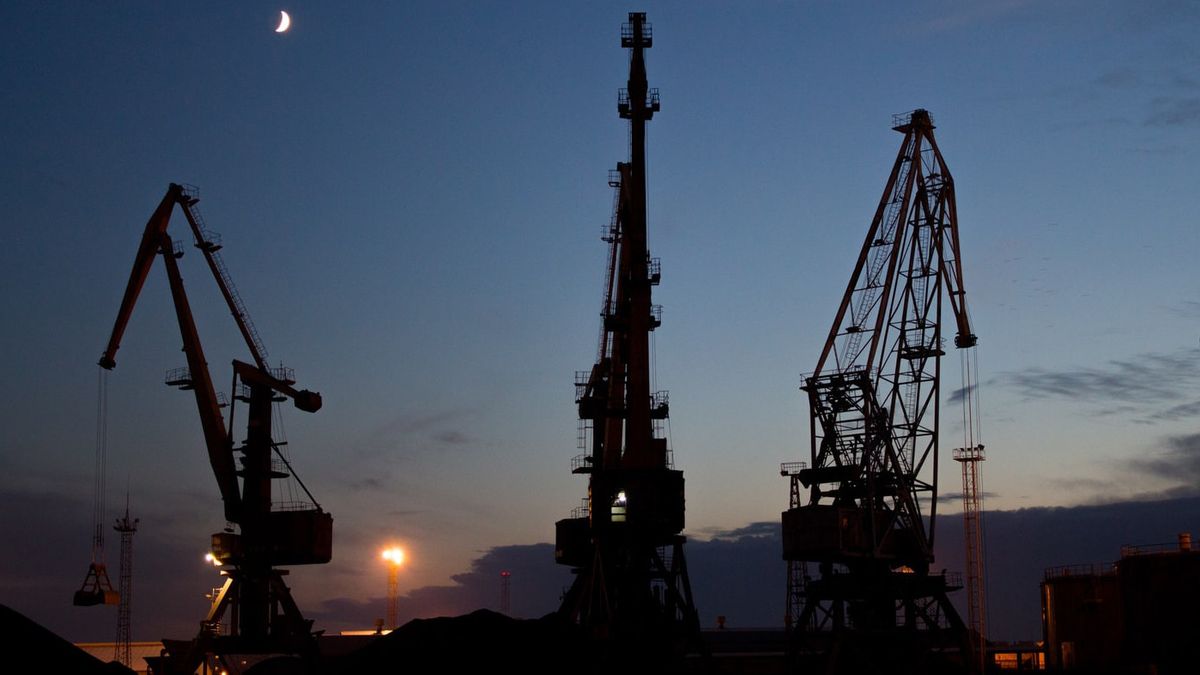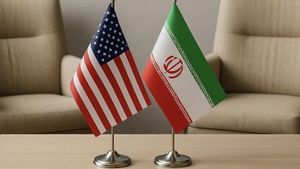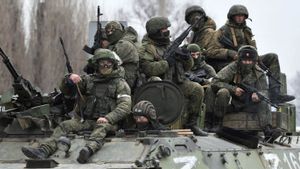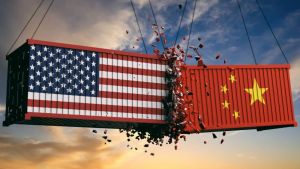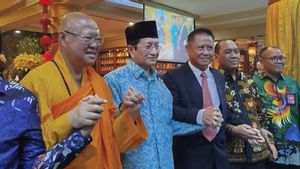JAKARTA - Member of Commission VII DPR Ridwan Hisjam asked the government to establish a control mechanism related to the plan to reduce natural gas prices to the industrial sector as stated in Presidential Decree 40 of 2016 concerning natural gas price fixing.
This is needed to measure the extent to which the added value and contribution of the industrial sector receiving certain natural gas prices to the national economy. This control mechanism can also be used as material for the government's evaluation of whether to continue this policy or not.
"The implementation of Presidential Decree No. 40 of 2016 to adjust natural gas prices for certain industries must be carried out after a definite scheme regarding the positive impact on the national economy," Ridwan said in a statement quoted on Thursday, February 19.
Furthermore, Ridwan assessed that the Presidential Decree 40 of 2016 actually has a goal so that the industry can provide added value to boost the national economy. The mechanism is carried out by reducing state revenue from the upstream sector. In principle, this scheme is a form of "subsidies" from the state to industry.
Therefore, he added, if the government wants to re-issue the Minister of Energy and Mineral Resources to set a certain natural gas price for the industry in accordance with the provisions, it must consider the state's financial capacity.
Because, he said, the reduction in state revenue from the upstream side that was not accompanied by a recovery in the form of added value provided by the industry would in fact make the APBN deficit even bigger.
"Apart from that, subsidizing gas prices must also be followed by an increase in taxes by the subsidized industrial sector," he added.
According to this Golkar party politician, if the industrial gas subsidy mechanism is chosen, the government must initiate the APBN scheme so that there is a supervisory function and a budgeting function from the DPR.
This is important to ensure that state finances are not disrupted. Do not let the government's sacrifice be unable to create added value for the industry, either directly or indirectly. This scheme is also a mandate from the State Finance Law.
"Not optimal government subsidies for industry will also create a large budget deficit in the 2020 State Budget and beyond. In the 2020 Draft State Budget, the budget deficit is estimated at more than Rp 307 trillion, "said Ridwan.
In fact, the current industrial gas selling price is still much more efficient than the use of fuels such as High Speed Diesel (HSD) and Marine Fuel Oil (MFO). Based on data as of January 20, 2020, the price of industrial gas is around 8.87 dollars per MMBTU.
Meanwhile, the price of industrial fuel for the HSD type is IDR 13,365 per liter or equivalent to 27.20 US dollars per MMBTU and for the MFO type is IDR 11,220 per liter or the equivalent of 21.19 US dollars per MMBTU. Thus, the price of industrial natural gas is only around 32 percent of the HSD price and 42 percent of the MFO price.
"Without subsidies for gas prices, the industry actually gets more efficiency compared to using fuel. Therefore, if it is given more subsidies, the government must be able to measure the economic impact on the country," said Hisyam.
In 2016, the Ministry of Energy and Mineral Resources implemented Presidential Decree 40/2016 by adjusting the purchase price of natural gas from upstream. So far, there are 7 industry categories listed in Presidential Decree 40 of 2016 that can obtain certain natural gas prices, namely fertilizers, petrochemicals, oleochemicals, steel, glass, ceramics, and rubber gloves.
However, there are only 3 industries, namely fertilizer, petrochemical, oleochemical that use natural gas as raw material / feed stock. Meanwhile, the other 4 categories only use natural gas as fuel or burner.
Of the 7 industrial sectors, only three industrial sectors have benefited from the Presidential Decree 40/2016, namely the fertilizer, petrochemical and steel sectors.
Danareksa analyst Niko Margaronis believes that the decline in industrial gas prices will have a positive impact on the performance of the industrial sector. However, how much added value is provided by the industrial sector receiving gas price subsidies cannot be measured.
To be sure, continued Niko, the need for more efficient energy is currently very much needed by many industry players. That is why the development of gas infrastructure should be a priority so that the distribution of natural gas can reach more areas in the regions.
"As in Java, infrastructure is needed so that energy can be distributed evenly to many industries. Therefore, it is very important that infrastructure development such as gas pipelines is a priority to support the strengthening of highly competitive industries," he said.
The English, Chinese, Japanese, Arabic, and French versions are automatically generated by the AI. So there may still be inaccuracies in translating, please always see Indonesian as our main language. (system supported by DigitalSiber.id)
